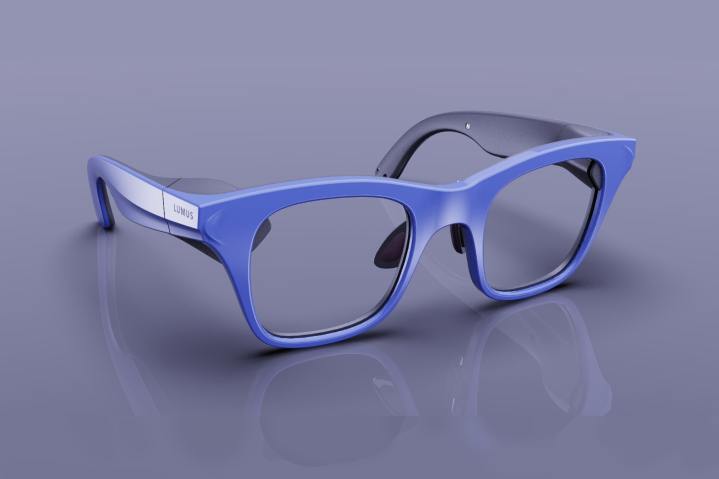Lumus recently announced its next-gen waveguide technology for AR glasses that will have a wider field of view and a brighter display, while being much more efficient than other solutions. We spoke with the Vice President of Marketing David Andrew Goldman about Lumus’ new Z-Lens design and technology to get the full scoop.
Building upon the already impressive, reflective waveguides used in the 2D Maximus design, the second generation Z-Lens can deliver a 3,000-nit display at 2K-by-2K resolution in an optical engine that’s 50% smaller, resulting in a pair of AR glasses that could weigh as little as 50 grams (in a monocular design). This makes it possible to manufacture stylish, lightweight AR glasses without any tradeoffs, such as tinting the lens or frequent charging.

The challenge with AR glasses is getting enough light to the display efficiently to allow a useful runtime while maintaining an attractive and unobtrusive appearance. Lumus waveguide technology has been estimated by AR display expert Karl Guttag to be five to ten times more efficient than competing solutions.
Goldman feels that the problem has been solved with the Lumus Z-Lens and shared that the company is working with multiple tier-one tech companies on future AR glasses. It will be two to three years before these products are likely to launch, but it’s exciting to learn more about what to expect in the future as this technology matures.
The final design of AR glasses is determined by the product manufacturer, but Goldman shared some details of what might reasonably be expected in terms of product specifications and pricing. With a cost roughly equivalent to a high-end smartphone, future AR glasses won’t be inexpensive, but should be priced within reach of most consumers.

At that $1,000 plus price, you can expect a comfortable, lightweight pair of glasses built with Lumus Z-Lens waveguide technology to look quite similar to normal eyewear. The display will have a 50- to 80-degree field of view and battery life will be sufficient for several hours of use. The bright, sharp display will be easily readable even when used outdoors.
A smartphone will probably still be needed for some features, like calling and GPS location tracking, but much of the processing will occur within the AR glasses. As Lumus likes to say “the future is looking up,” and the need to glance down at your
Editors' Recommendations
- Xreal brings spatial computing to a pair of AR glasses
- Apple’s secret AR glasses may have this genius feature for glasses users
- Here’s when Apple’s AR glasses could finally go on sale
- Apple’s AR glasses ‘now appear many years away,’ report says
- The best VR and metaverse tech of CES 2023




